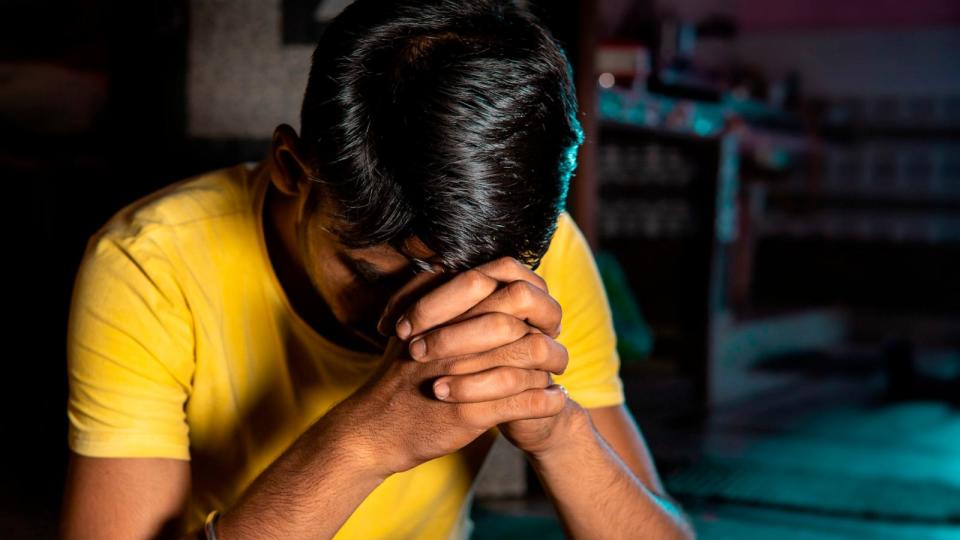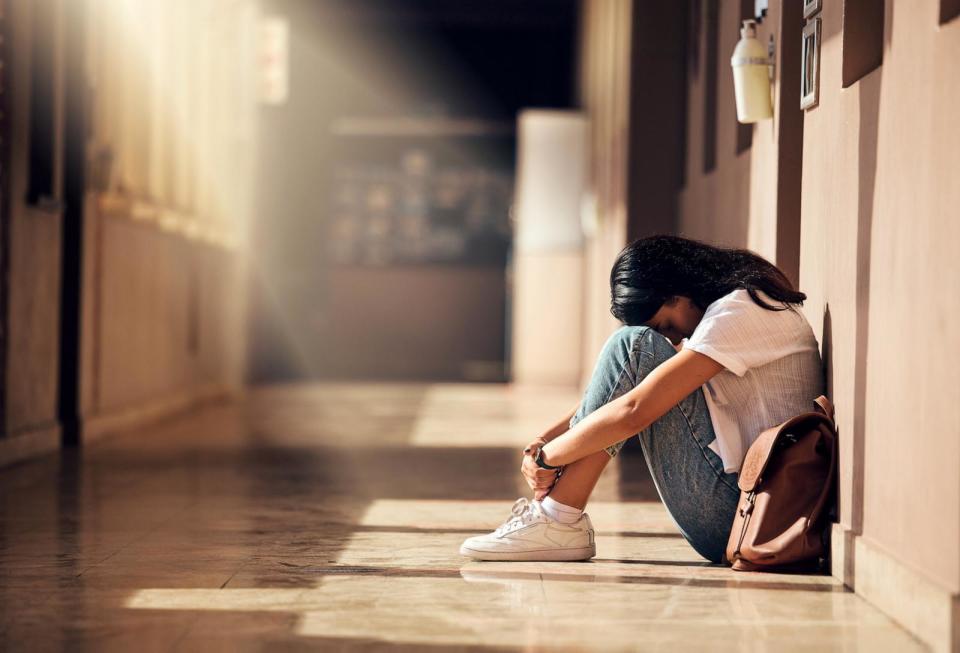Indian students' deaths highlight need for improved mental health resources: Experts
The deaths of seven Indian college students across the United States in less than two months have shocked the community and raised serious questions about how they could have been prevented.
Although the deaths are unrelated, there is concern about students' mental health -- particularly among those in the Indian community, experts told ABC News. The incidents involved Indian students from different universities, and range from death by suicides, accidental overdoses and a brutal assault, according to authorities.
In the wake of these deaths, one lawmaker is also calling for increased mental health support. Among adults with any mental illness, only 25% of Asian adults reported receiving mental health services compared to 52% of white adults in 2021, according to a study from KFF, a nonprofit organization that specializes in health policy research and polling.
MORE: Parents of Purdue student killed in dorm open up about 'peacemaker' son's shocking death
"Students of Indian origin are people who are high achievers and they come from families with very high expectations," Rep. Raja Krishnamoorthi, an Illinois Democrat and one of the few Indian Americans serving in Congress, said in an interview with ABC News. "They not only have to deal with the stress of the high expectations … but also the stress of being in a new environment. And I would just respectfully request our families to make it less stigmatic to seek mental health support."
For students and parents, the recent spate of deaths has been cause for alarm.
"Deaths like the ones that these students have experienced, untimely ones, very unexpected, really shake the community," said Manjusha Kulkarni, co-founder of Stop AAPI Hate, the nation's largest reporting center tracking anti-AAPI hate acts.

In January, 19-year-old Neel Acharya was found dead on Purdue University's campus. Officials confirmed to ABC News that his death was ruled an accident due to asphyxia. Cold temperatures and alcohol intoxication were also associated with his death, according to the coroner's office.
Days later, a Purdue graduate student died by suicide, according to the coroner's office.
In Connecticut, the bodies of two Indian-origin students, 22-year-old Dinesh Gattu and 21-year-old Sai Rakoti, were found in their apartment on Jan. 15, according to police. The Sacred Heart University students suffered accidental fentanyl overdoses, according to the medical examiner's office.
At a Georgia gas station, police found Vivek Saini, a 25-year-old Indian graduate student, dead after being allegedly beaten to death. The suspect, Julian Faulkner, 53, was taken into custody. Faulkner has not yet entered a plea, according to the DeKalb County Public Defender's Office.
Faulkner's attorney did not immediately respond to ABC News' request for comment.
Akul Dhawan, an 18-year-old freshman student from the University of Urbana-Champaign (UIUC) in Illinois, was found dead after he was reported missing.
MORE: Parents, take note: Kids, teen, college student mental health problems on the rise
Ten hours after he disappeared, university police found him a few hundred feet from where he was last seen on campus. The coroner's office says Dhawan's autopsy confirmed his death was due to hypothermia and acute alcohol intoxication.
Questions regarding the quality of campus police's search efforts have garnered scrutiny and attention.
Krishnamoorthi said the recent deaths were "deeply disturbing," and said he spoke to Dhawan's parents, who want more answers regarding the university's search.
Aarushi Raathor, vice president of communication at UIUC's Indian Student Association, said students on campus "feel in the dark" and want a more thorough explanation about Dhawan's death and the search efforts to find him.
"These incidents have definitely made me feel just very unsettled," Raathor said.
Dhawan's death remains under investigation, Chief of Staff of UIUC's Division of Public Safety Pat Wade said.

On Feb. 1, another Indian student from the University of Cincinnati was found dead. The coroner's office said the cause of death was ruled a suicide.
A U.S. Department of Education spokesperson called these students' deaths "heartbreaking."
"This is every parent's worst nightmare and our hearts go out to the families of these young men," the spokesperson said in a statement to ABC News. "The Department is committed to ensuring our colleges and universities have vital resources that allow all students to live and learn in safe, supportive and welcoming environments that are free from discrimination and hate, and include access to critical mental health supports, regardless of race or national origin."
And the deaths could impact international students' feeling of safety, said Dr. Arpana Inman, who studies mental health in the South Asian community and is a dean at Rutgers University.
Inman said these incidents may push families to reconsider sending their child to the U.S.
"Certainly I think folks will think twice about sending their child here," Inman said. "But, you know, it's kind of a mixed bag in some ways, because there's some prestige in U.S-based education."
More than 25 percent of the total population of international students studying in America are Indian, according to the Embassy of India.
MORE: Young adults twice as likely as teens to suffer from anxiety and depression, study finds
International students can experience stressors such as language barriers, discrimination, mental health and emotional concerns, according to a 2016 review article published in the Journal of International Students.

Inman notes that the intense academic and social pressures placed on young men and women in that community can lead to loneliness, substance abuse or suicidal thoughts.
"I know there's a lot of academic pressure to get good grades, go to good schools and also go within certain disciplines … and if students don't go into those kinds of professions, then they're seen as kind of not worth investing in," Inman said.
Aadit Bennur, who is vice president of Purdue University's Indian Student Association, said cultural pressure may deter students from seeking help they need.
"I think there's also a bit of taboo, around speaking up about the pressures that people are facing, I think you just kind of like, shut up and keep pushing and try and get through it," Bennur said.
Bennur and Raathor said their universities provide mental health resources to students. However, anecdotally, they said few students use the resources or find them culturally understanding.
"I definitely think that in regards to the South Asian community, cultural awareness in these resources is vital," Raathor said. "Especially, you know, like cultural awareness, cultural sensitivity, whatever resources these college campuses are offering, have to include these factors, these aspects in order to actually be effective with such a diverse community."
MORE: College students guide to mental health
Dr. Vasudev Makhija, president of the South Asian Mental Health Initiative and Network, said parents should listen to their children when they voice their struggles.
"I've heard many cases where these young, high school or college kids go to their parents and express their issues, and they are told 'Oh, just drink more water' or 'just pray harder' or 'just focus on your homework, all this will go away,'" Makhija said.
Kulkarni of Stop AAPI Hate said students need to think about their emotional and academic wellbeing.
"When we send our kids off to college, it's not simply to say, OK, they're prepared academically, and they have the financial support, so they don't have to worry about jobs or money," Kulkarni said. "But we also have to make sure that they have the wellbeing to engage in those studies."
If you are struggling with thoughts of suicide or worried about someone, call or text the Suicide & Crisis Lifeline at 988 for free, confidential emotional support 24 hours a day, seven days a week.
Indian students' deaths highlight need for improved mental health resources: Experts originally appeared on abcnews.go.com

